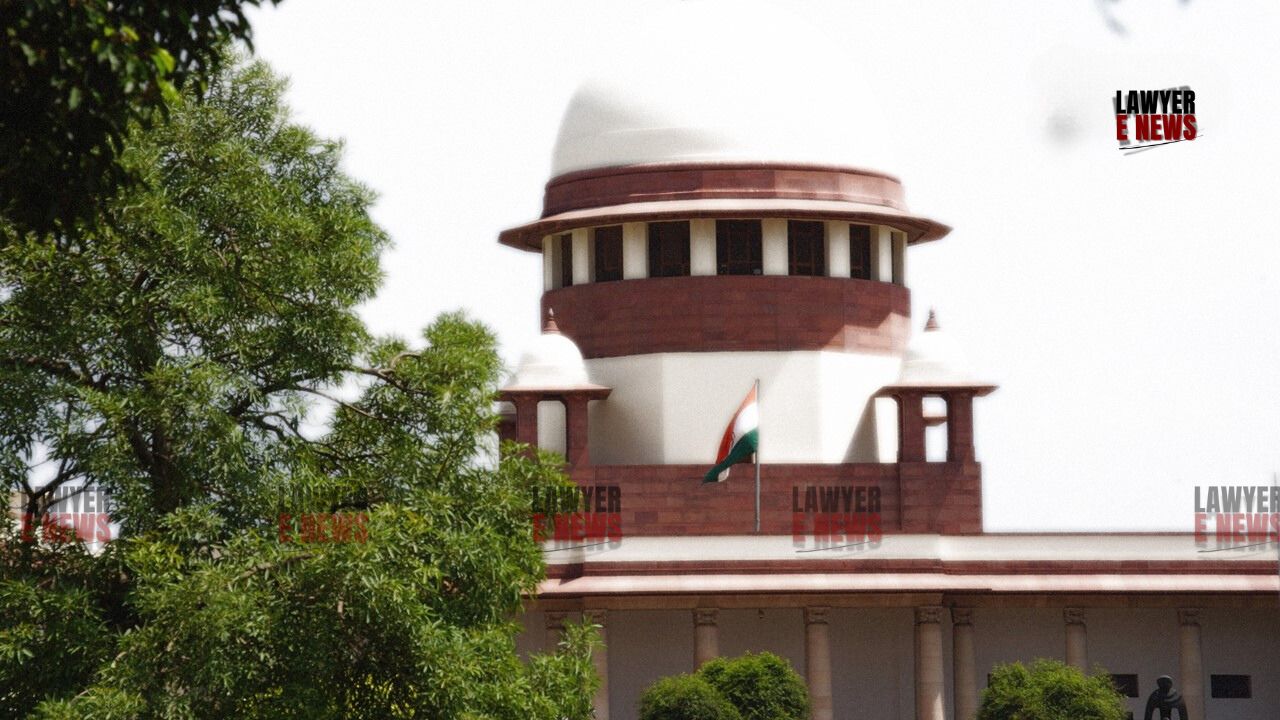-
by Admin
15 February 2026 5:35 AM



Supreme Court of India, in the case of Ajay Madhusudan Patel & Ors. v. Jyotrindra S. Patel & Ors., ruled that a non-signatory entity can be referred to arbitration if its conduct and involvement in the contract demonstrate a prima facie intention to be bound by the arbitration agreement. The Court appointed Justice Akil Kureshi (Retd.) as the sole arbitrator to resolve the disputes under a Family Arrangement Agreement (FAA), emphasizing that the arbitral tribunal would decide the role of the SRG Group, a non-signatory to the FAA, in the arbitration process.
"Even a Non-Signatory Can Be Bound by Arbitration": SC on Section 11(6A) Inquiry
On September 20, 2024, the Supreme Court of India delivered a significant ruling in Ajay Madhusudan Patel & Ors. v. Jyotrindra S. Patel & Ors., focusing on the applicability of arbitration clauses to non-signatories under the Arbitration and Conciliation Act, 1996. The case arose from a dispute under a Family Arrangement Agreement (FAA) between the AMP Group (Petitioners) and the JRS Group (Respondents), with the SRG Group, a non-signatory, being intricately involved in the performance of the FAA. The Court allowed the arbitration petition, appointing a sole arbitrator, and ruled that the SRG Group could be referred to arbitration, with their involvement to be further examined by the arbitral tribunal.
The dispute centers around a Family Arrangement Agreement (FAA) executed between the AMP Group and JRS Group, designed to settle various business-related issues, including share transfers in two key companies: Millenium Estates Pvt. Ltd. and Deegee Software Pvt. Ltd. The SRG Group, although not a signatory to the FAA, held a substantial equity interest in these companies. The petitioners sought to refer disputes, including those involving the SRG Group, to arbitration, arguing that the SRG Group’s involvement in executing the FAA implied their consent to the arbitration agreement.
The key legal question was whether the SRG Group, a non-signatory to the FAA, could be compelled to arbitrate under the agreement. The Court explored whether the SRG Group’s involvement in the performance of the FAA, including share transfers and participation in mediation, was sufficient to bind them to the arbitration clause under Section 11(6) and Section 11(6A) of the Arbitration and Conciliation Act, 1996.
The Court emphasized that under Section 11(6A), the referral court’s inquiry is limited to a prima facie examination of the existence of an arbitration agreement, leaving detailed issues for the arbitral tribunal. The Court reasoned that although the SRG Group did not sign the FAA, their conduct in its performance and their role in the underlying transactions indicated an intention to be bound by the arbitration agreement.
Non-Signatory Bound by Conduct: The Court applied the group of companies doctrine to argue that even though the SRG Group was not a formal signatory, their participation in the execution and implementation of the FAA, such as share transfers in Millenium and Deegee, raised a prima facie case for referral to arbitration. The judgment noted:
"Their conduct and involvement in the performance of the FAA raised a prima facie case for them being bound by the arbitration clause." [Para 52-80]
Prima Facie Determination: The Court reiterated that under Section 11(6A), the referral court's scope is limited to determining the existence of an arbitration agreement. The arbitral tribunal, once constituted, would decide the merits of whether the SRG Group is a veritable party to the agreement:
“The referral court must avoid conducting a detailed inquiry into the facts and instead limit its examination to the prima facie existence of the arbitration agreement.” [Para 60-63]
Consent and Conduct as Key Factors: The Court cited emails, meetings, and negotiations involving the SRG Group, which indicated their consent to be bound by the FAA's terms. The SRG Group's active involvement in these negotiations suggested that they intended to adhere to the FAA, despite not being a formal signatory:
"The issue of whether the SRG Group is a veritable party to the arbitration agreement should be decided by the arbitral tribunal after evaluating the evidence." [Para 68-79]
The Supreme Court allowed the arbitration petition and appointed Justice Akil Kureshi (Retd.) as the sole arbitrator. The Court ruled that all contentions, including the involvement of the SRG Group in the arbitration process, would be left open for adjudication by the arbitral tribunal. The judgment reinforces that under Indian arbitration law, even non-signatories can be bound by an arbitration agreement based on their conduct and involvement in the underlying contract.
Date of Decision: September 20, 2024
Ajay Madhusudan Patel & Ors. v. Jyotrindra S. Patel & Ors.
